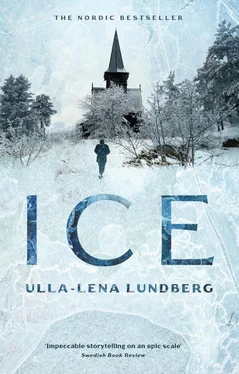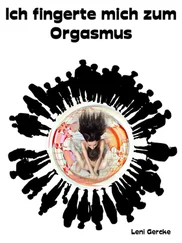He says, in the darkness of the bedroom. In just a couple of weeks, a good deal of Mona’s pain and swelling has abated, and she is in good spirits. “Oh, now don’t go rushing off again half-cocked,” she says. “Let’s wait and see how things look a month from now. Appointments won’t be announced until the spring, so we can wait. Doctor Gyllen said it wasn’t necessarily due to the cold. If I get well, I want to stay where you feel at home, it’s as simple as that. No point in wasting energy on a lot of unnecessary speculation!”
“Don’t say that just for my sake,” he tells her.
“For my sake too, you dimwit. You’ve become much nicer since we came here. And where else do you think I could have my own cows? Don’t forget I feel at home here too.”
For even though the islanders are in many ways her rivals for Petter’s time, attention, and favour, there’s no denying that they have a great attraction for Mona as well. She hasn’t come to know as many of them as Petter has, but the ones she’s met she likes, and she is much more particular than he. She had thought she would have to spend much of her enforced confinement with the radio and Sanna’s chatter as her only company, but it turns out that many of those who have business on Church Isle come in to say hello. Without the least embarrassment, they sit down and talk for a while and it is as naturally as an eighteenth-century queen receiving visitors while lying in her bed. Then they have coffee in the warm parlour and discuss their errand with the pastor. Best of all, of course, is when the organist stops by, gallant and handsome, with a warming smile. “And how is the patient today? Just fine? And the young ladies?” He looks at Sanna, who stands on the threshold admiring him, and at Lillus in her crib.
“Sit down for a moment if you’ve got time and tell me what’s going on out in the world,” says Mona. Insightful as he is, he talks about the conditions in his cow barn where he has five cows and various younger animals, a horse in his stable, and nine ewes and a ram in his sheepfold, always of interest to the pastor’s wife. Then he tells her of the latest schism in the local council about the allocation of funds to the school library in the east villages that is open a few hours a week. The opposition—short-sighted, narrow-minded, uncultured— cannot see that reading is an important educational benefit for the public good. Then about the winter communications, functioning relatively well this year although Anton has his work cut out for him. Finally, less willingly, and only when she asks, about Francine.
Yes, the boy was born severely retarded. Doctor Gyllen said so and the hospital in Åbo has confirmed it. In addition, a congenital heart defect. Blue, due to poor oxygenation. Best, frankly, if he were to die. Poor child, poor Francine. Exhausted and unhappy, of course, thank heaven they have Mama in the house. What would they do without her? So the housework is getting done, but Francine is miserable. It’s a shame about their daughter. He’s trying to be both a mother and a father to her, which isn’t easy when he has to be away so much. Which reminds him that, however pleasant it is to sit and talk, he has to go find the priest and discuss the coming vestry meeting and then get home. So thanks, and see you again. Hope you’ll be feeling better soon.
Yes, for however singular and beautiful the Örlands are in themselves, nevertheless the people are their main reason for wanting to stay. Mona doesn’t want to mention it for fear of tempting fate, but she feels that she’s getting well and wants desperately to get started on all the springtime work. It will be their third spring on the Örlands, and they’ve already accomplished much. Conditions in the cow barn are good, they’ve added to their farmland, their crops will be a joy to behold when the time comes, the fences are repaired, and they’ve put money aside towards a horse and a motorboat. It will take a catastrophe to get them to leave all this.
WHEN THE PASTOR’S WIFE starts getting dressed for the installation of the new vicar, she finds she can no longer get her arms into the little black wool dress that witnessed Petter’s ordination. It’s not that she’s grown fat, just that hard work on the Örlands has developed her muscles and joints. Her girlhood is behind her, and she can only laugh. “Look there!” she says to Petter. “No seam to let out, and anyway I really don’t have time to let out seams.” She sounds surprisingly cheery, he notes, and the fact is that his wife is not a bit unwilling to revolt against the unwritten law that dictates black, black, black as the festival colour for women of the church. Black wool is not recommended for the pastor’s wife as she leaps like a doe among her many duties. Instead, she has no choice but to wear her new summer dress, recently arrived in an American package, which fits beautifully and has a pretty collar, bloused sleeves, and a wide skirt. It has a pretty pattern in blue and fuchsia and is cool as a dream compared with the black wool. The first time such a creation has appeared in the front pew at the installation of a vicar! Petter’s engagement necklace around her neck, her hair rolled and combed, cleared for action!
“You’re so pretty today,” says the pastor, although he knows she’ll answer, “Oh, go on!” The vicar-to-be can still get into his cassock. Perhaps it has grown with him, since he has worn it every Sunday since his ordination. To be sure, it sits as tightly as a suit of armour, but the seams hold. He will simply have to see to it that he grows no more substantial than he is right now. It’s as warm as burning Gehenna on a day like this, but they have decided never to complain about the heat on the few warm days they are granted on these wind-tortured islands. And it is truly a good thing to have such fine weather on this day, when Church Isle will be covered with people all day long.
What would they have done had it rained? After the service, they will serve coffee to at least four hundred people, and after the open-air programme of speeches and songs, the guests who have come a great distance will be served dinner—potatoes, fried pike with horseradish sauce and several square metres of lettuce that the pastor’s wife has raised in her kitchen garden, tender and delicious, which she’ll serve with a dressing of eggs and cream mixed with a little sugar, salt, and vinegar. The famous local breads—black and homemade white, her own butter, her milk, and her well-brewed small beer. For dessert, prune whip with whipped cream, an Åland speciality. Help in the kitchen, of course, but under her own watchful eye. Plates, coffee cups, bowls, and silverware borrowed in big baskets from the Martha Society and the youth centre. All this food and activity spreads out across the kitchen and the dining room, but the parlour is a protected zone. Here the visiting dignitaries are served a substantial breakfast of porridge, cheese sandwiches, and coffee or tea, to hold them through the long installation service.
It’s like a royal visit. First the bishop, the bishop’s wife, and the assessor will arrive from the east on one of Åbo’s fast Coast Guard cutters. Many of the Örlanders have already arrived and stand on the bell-tower hill keeping a lookout. When the foaming prow of the boat is seen in the distance, a message is sent to the parsonage at once, and the vicar-to-be and his wife stroll down to the church dock to receive their visitors with a smile. Welcome, welcome! And thank you, thank you! The Coast Guard crewmen, like aides-de-camp, ready with discreet hands as the bishop—in his doctor’s hat, cassock, and bishop’s cross—steps ashore with his wife. Handshakes and great delight on all sides about the weather, about seeing one another again, about the Day and all it will mean for the life of the faith in the outer islands. “And it’s so beautiful here. So indescribably lovely!” The gentlemen walk slightly ahead, scrutinized by Apple and Goody, who then focus their attention on Mona, who does not stop and pat them but informs the bishop’s wife, “Yes, they’re ours, I tend them myself. Without cows of our own, we’d have a hard time feeding ourselves out here.”
Читать дальше












